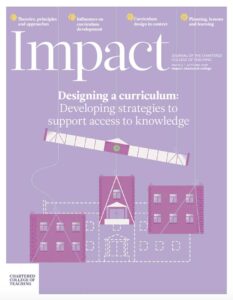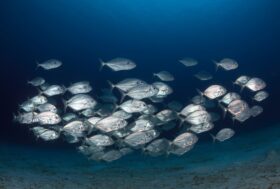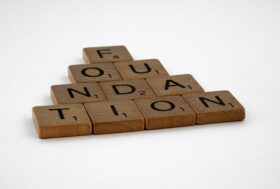A brave global curriculum

At Egerton primary school, we viewed the release of the new curriculum in 2014 as the perfect time to review our vision, curriculum design and learning culture. Governors and all stakeholders were involved in the development of the vision:
Through dynamic teaching, a highly creative curriculum and supportive environment, every Egerton child gains a passion for learning. When combined with the knowledge, skills and values they develop, we enable our children to fulfil their potential as global citizens in an ever-changing world.
This was followed up by the senior leadership team (SLT) leading the staff through exploring what this would look like in practice for our school, before embarking upon an exciting journey.
| Identity
|
|
| InclusionAn approach where a school aims to ensure that all children ... More |
|
| Relationships
|
|
| Self-determining
|
|
| Disruptive pedagogy |
|
| Outcomes |
|
In September 2015, we developed a strategic plan that began by mapping the foundation subjects discretely to ensure coverage and progression across the year groups against the new curriculum objectives. The senior leadership team were instrumental in developing strong cross-curricular links that would enable all learning to have a strong and purposeful context and therefore provide the children with greater opportunities to apply their English skills. After researching different approaches to curriculum development in Outstanding Teaching: Teaching Backwards (Burns and Griffiths, 2014) and Oops: Helping Children Learn Accidentally (Roberts and Gilbert, 2012), some of the strategies suggested by Roberts (2012) were used to develop a creative, thematic (BRAVE) curriculum, which provided a context for children’s learning:
- Buzzing
- Relevant
- Academic
- Vocational
- Evaluative
Another aim of the plan was to continue to embed the aspects of the global dimension throughout the curriculum so that they would therefore become the ‘golden thread’ on which most learning is based. These aspects are: global citizenship, conflict resolution, diversityThe recognition of individual differences in terms of race, ... More, human rights, interdependence, social justice and sustainable development. These came to prominence in 2000, but Hicks and Holden (Hicks and Holden, 2007) were instrumental in the development of this concept and cite the work of Richardson (Richardson, 1976) as providing the inspiring impetus for their work.
Learning from Years 1 to 6 has been organised into themes, using an overarching context for all learning to take place. To introduce the children to the theme, they experience a ‘stunning start’, which is designed to create an interest and engagement in what they will be learning about. An example of this for the theme ‘Titanic’ was the hall being transformed into the Titanic. When children arrived, they were given a ticket – either first class, second class or steerage. This was the context for an engaging drama session.
Each theme is designed to be relevant to the context of the school and looks to explore local, national and international issues, such as poverty or climate change, therefore bringing global learning to life within our curriculum during day-to-day teaching and learning. The objectives from the National Curriculum are covered within the themes, with a focus on developing Claxton’s (Claxton, 2002) ‘learning powers’ of being resilient, reciprocal, resourceful and reflective. Finally, the learning within each theme is evaluated and celebrated with the carrying out of a ‘fabulous finish’, which provides opportunities for children to present what they have learnt to an audience.
The impact of this approach has been that there are much clearer opportunities to tackle global issues through the relevant themes, as well as to provide a clear purpose for learning. This has supported the school in achieving three consecutive International Schools Awards, being recognised as an Expert Centre for the National Global Learning Programme and achieving the Rights Respecting Schools bronze award. There has also been a significant increase in the amount of writing and English skills being strongly applied across the curriculum. Children are reading and writing much more at length through the context of their themes, combined with a systematic approach to teaching SPAG (spelling, punctuation and grammar), and this has impacted significantly on the percentage of pupils achieving the expected standard by the end of Key Stage 2 in English. The percentage in writing has increased from 67% in 2016 to 76% in 2017. There has also been an increase in pupils achieving the expected standard in reading: 63% in 2016 to 86% in 2017.
To further enhance our thematic curriculum and academic attainment, we wanted to ensure that all learning had a clear purpose so that children became immersed in what they were learning. This would facilitate them to gain a greater level of understanding of why events take place so that they can develop skills such as empathy, which will further enhance their learning and achievement. To do this, the SLT researched and initiated the implementation across each theme of ‘Mantle of the Expert’ (Taylor, 2016). Consequently, each of the themes the children experience are given a ‘mantle of the expert’ opportunity, which allows them to develop the skills they need to become experts through being set problems to solve by a fictional client (client, commission and expert). In addition to this, the children explore the issues surrounding becoming an ‘expert’ through the discussion around some carefully selected inquiry questions, where children are given the opportunity to explore concepts that are pertinent to their overall theme. To support this aspect of inquiry, the integration of ‘philosophy for children’ across the school supports the children in their thinking, reasoning and questioning, as well as the way in which the children speak and listen to each other in the dialogue, thus facilitating deeper learning, critical thinking skills and problem-solving. In a recent parent survey, 100% of parents said that they agreed that the curriculum embraces the vision and the philosophy of the school. The attainment and progress of children across the school is continually improving.










